Mon - Sun:
Open 24 hours
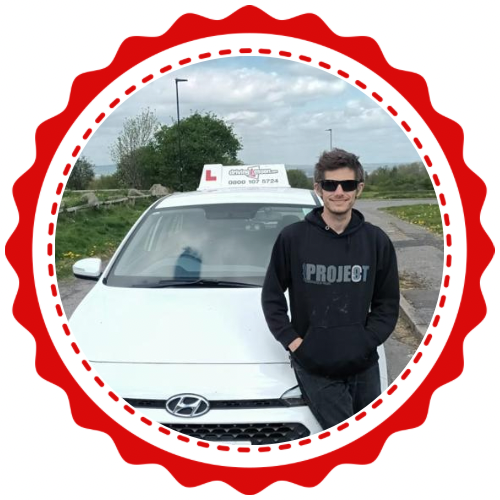
TOP TIP: Your shoes might not be the first thing you think of when you start learning to drive, but wearing the wrong footwear while driving can not only make it harder, but it can also be dangerous. Learners should wear something with a flat but thin sole, because you want to be able to be able to feel the car respond to what you’re doing.
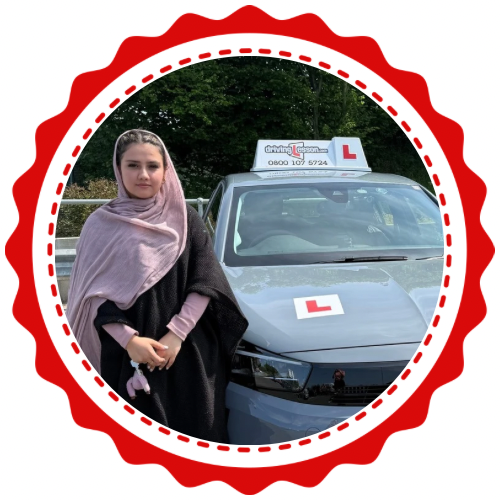
TOP TIP: What to wear? Driving lessons can be stressful, so think about what to wear to make sure you’re as comfortable as possible. Stick to clothes that aren’t restrictive, allow for easy movement, and that aren’t too hot or heavy.

TOP TIP: Nerves and anxiety have been the cause of many failed driving tests and plenty of stressful lessons too. There are lots of relaxation techniques you can use, during lessons and in-between lessons, to reduce your anxiety levels and help you perform better behind the wheel: get enough sleep, stay hydrated, practise deep breathing exercises.

TOP TIP: It is important not to dwell on mistakes you make during your driving test. You can’t change them, and there’s no guarantee that your mistake has resulted in a fail. You should concentrate on what you’re seeing ahead of you at that very moment instead of looking back at what’s already happened.
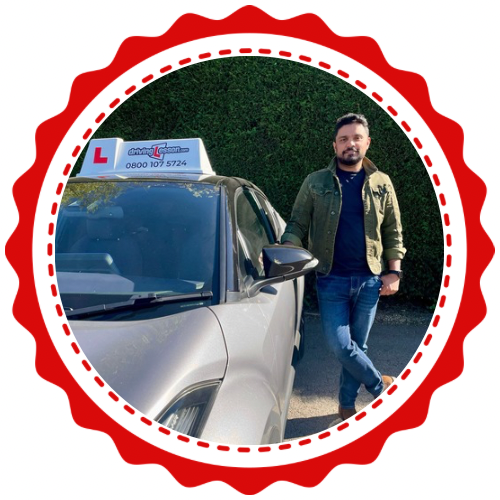
TOP TIP: You can’t be 100% certain that road conditions will be dry, and the sun will be shining when it comes to your test. As such, you should experience lessons in varying conditions if possible. By driving in bright, dark, wet, dry, and foggy conditions you will pick up priceless experience that will pay off hugely.

TOP TIP: If you decide to spread out your lessons, we suggest block booking them with at least one or two lessons per week for weeks in advance. This way you’ll remember more going into each lesson and you won’t have to worry about the availability of your instructor.
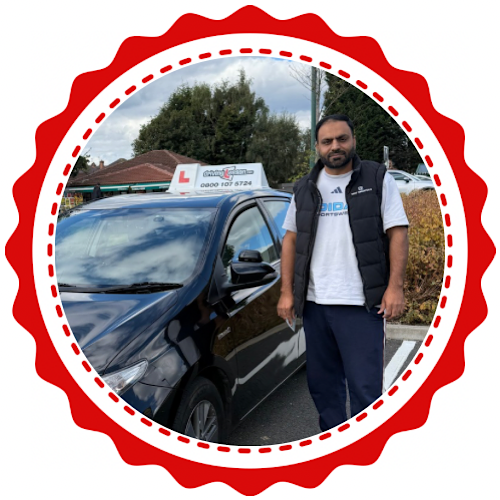
TOP TIP: Don’t feel pressured to get manoeuvres perfect on the first try. You may need several attempts, and that’s normal. Your instructor will move at your pace. If you’re unsure about anything, ask — one small question can make you feel much more confident.

TOP TIP: The ideal frequency of lessons depends on your schedule and budget. On average, a two-hour professional lesson each week plus practice with friends or family is a good approach.
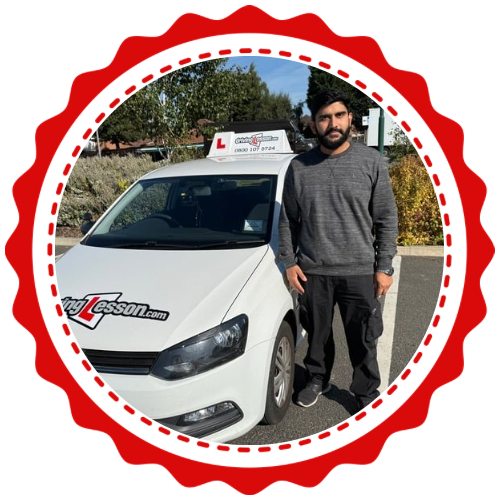
TOP TIP: It may seem like early days, but preparing for your theory test from the get-go will help you perform better and get more from your driving lessons. Familiarising yourself with road signs and the Highway Code early on means you’ll feel more confident during your lessons.
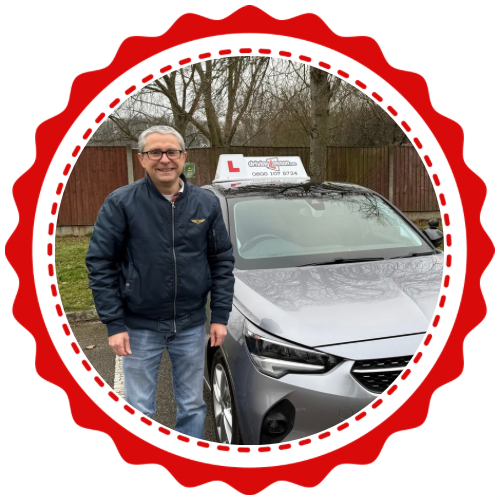
TOP TIP: No minimum number of lessons are required to pass your test and there is no fixed time frame for learning to drive. Most people spread their driving lessons out over several months, but you can also take an intensive driving course if your budget allows.
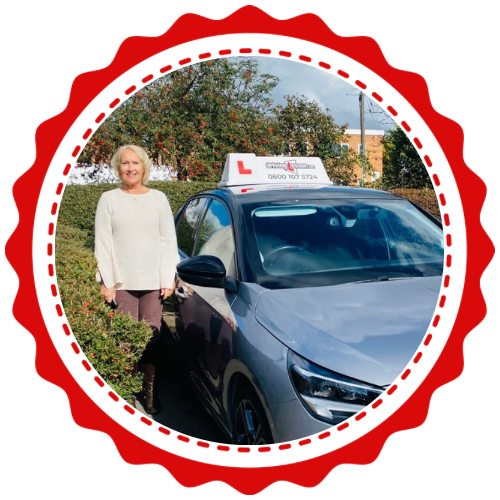
TOP TIPS: Buying a used car to practise in between lessons can help you learn and pass your driving test quicker. But it’s important to note that, until you pass your driving test, you must be accompanied by someone over 21 who has had a full driving licence for at least three years.
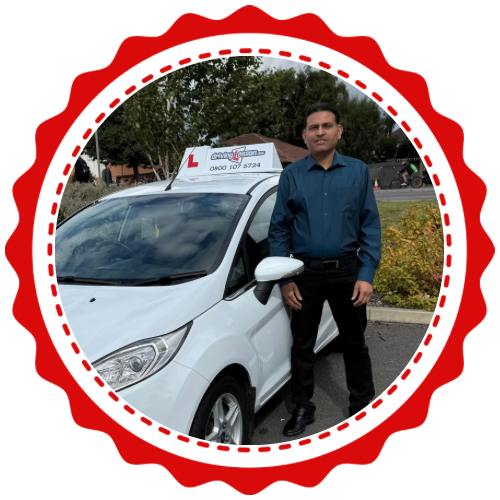
TOP TIP: It might sound obvious, but don’t take your driving test until you’re ready. Lots of people fail the driving test just because they haven’t taken enough lessons to pass.
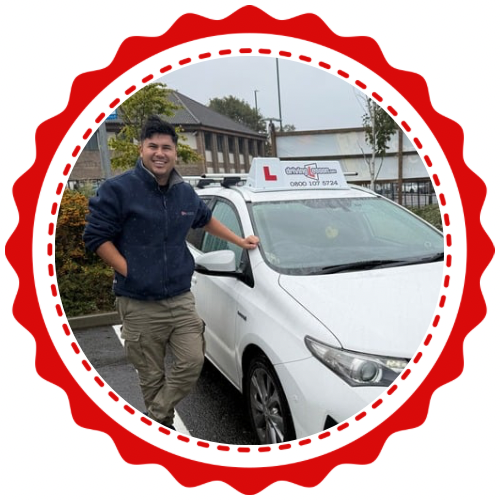
TOP TIP: Knowing your road signs and the Highway Code will greatly improve your decision-making and give you the confidence to drive in a calm and safe manner.
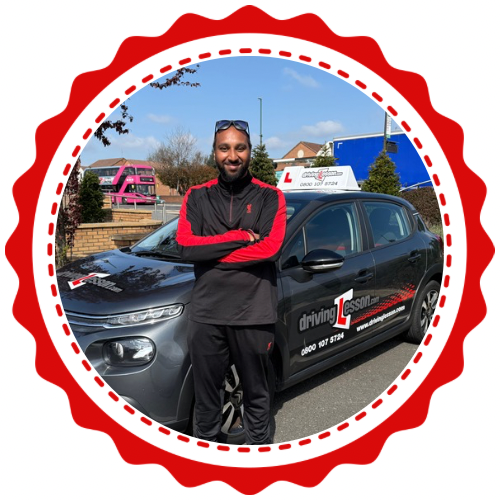
TOP TIP: There are a few steps that you can take to ensure that you feel fresh and ready for driving lessons. Book them at a time when you’re feeling at your most alert, awake and receptive to learning. Are you an early-bird-catches-the-worm type, or do you spend your mornings battling with the alarm clock and don’t feel truly awake until lunchtime? Just try to pick a time which suits you and fits around your daily schedule.
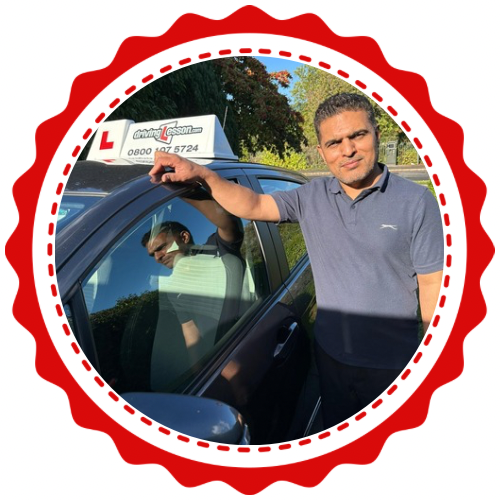
TOP TIP: You are unable to take your practical driving test until you have passed the driving theory test. Getting a head start and taking the test early on will help with your practical driving skills and general road confidence.
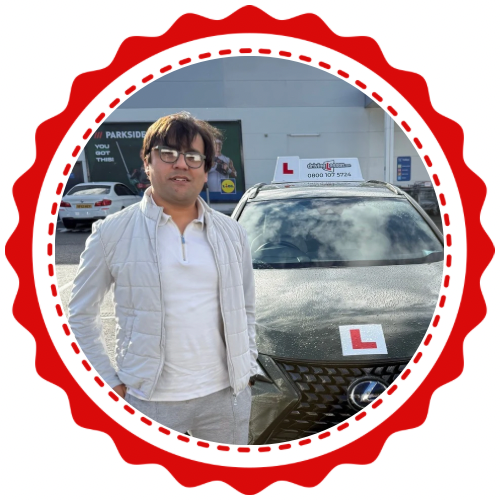
TOP TIP: Don’t dwell on mistakes during your driving test. You can’t change them, and they don’t necessarily mean you’ve failed. Focus on what’s happening ahead of you right now, rather than looking back at what has already happened.

TOP TIP: Learning to drive takes time. No one’s going to be able to pick it all up at once. Break your learning up into smaller, bite-size chunks. Instead of trying to do it all, focus on learning new skills in every lesson, and you’ll soon build up your learning in a safe and solid way that’ll serve you for the rest of your driving life.
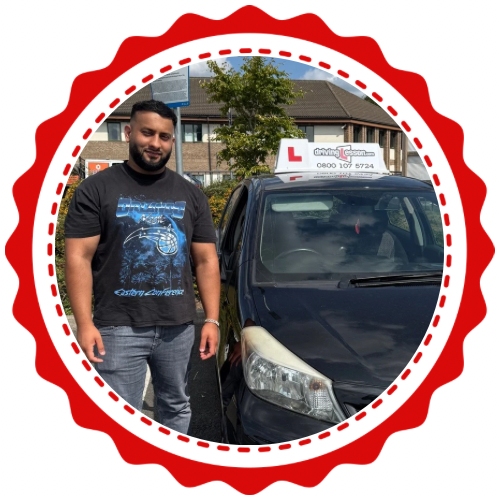
TOP TIP: Learning to drive can be broken up into small pieces. You will never be able to pick it all up at once but learning new skills every lesson will allow you to build up safe driving skills which you’ll use for the rest of your driving life.

TOP TIP: Be ready to make mistakes and don’t beat yourself up over your mistakes – everyone makes them. This is a learning process, and mistakes give you the opportunity to learn and improve.

TOP TIP: Driving examiners are expected to follow one of several routes that are local to your test centre. These routes are known by your driving instructor and can often be found online through websites that allow you to copy the route onto a Sat-Nav device. Practising these routes with a Sat-Nav device can be very helpful to mimic the real thing.

TOP TIP: Make sure that your instructor has given you a brief rundown of the mechanics of the car, this knowledge will be invaluable with addressing the Show Me, Tell Me but will also help give you better all-round knowledge of what it means to drive a car.
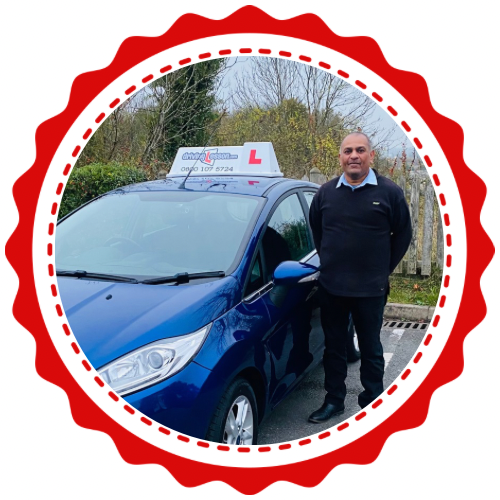
TOP TIP: Don’t beat yourself up if you fail once or even multiple times. Take any feedback on board so you won’t make the same mistake next time. Also book your next test right away. Leaving it too long between tests may result in you forgetting certain things and end up costing you more money on further lessons and tests.
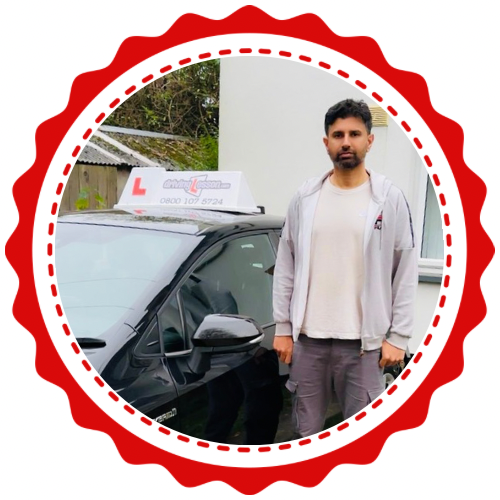
TOP TIP: When you pass your test, the learning continues. You’ll face new situations all the time, such as motorways, city centre driving and tight parking. Therefore, it’s important you do not dismiss all you have learnt and that you approach each new situation with the same careful thinking and execution taught by your instructor.
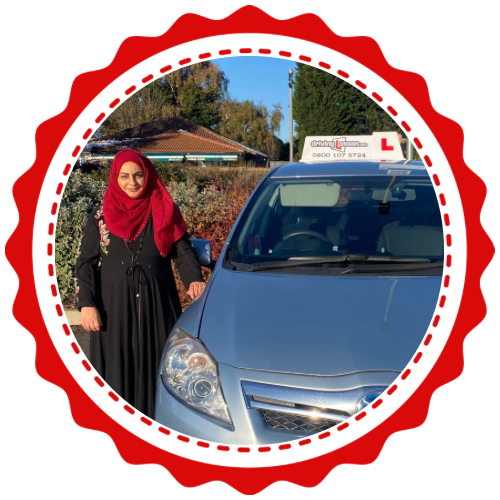
TOP TIP: Studies have shown that people learn more effectively when they’re happy. Staying positive about your driving experiences can really help. Make changes to your thinking patterns so you’re focusing on the positives rather than the negatives.

TOP TIP: Having a driving examiner next to you can understandably make you nervous. It is easier to pretend you’re just taking someone out for a drive. You’d want to give your passenger as smooth a ride as possible, just like you do with the examiner.

TOP TIPS: Think about how you learn best. As every learner is different, it’s important that you know which learning style and teaching technique works best for you. Are you a practical learner or do you learn best through reading and listening?

TOP TIP: The learning doesn’t end once you’ve passed so it’s important to keep in touch with your instructor even after you’ve passed your driving test. Having lessons for post¬-test skills like motorway driving, night-time driving and driving in snow can all be crucial for a lifetime of safe driving.
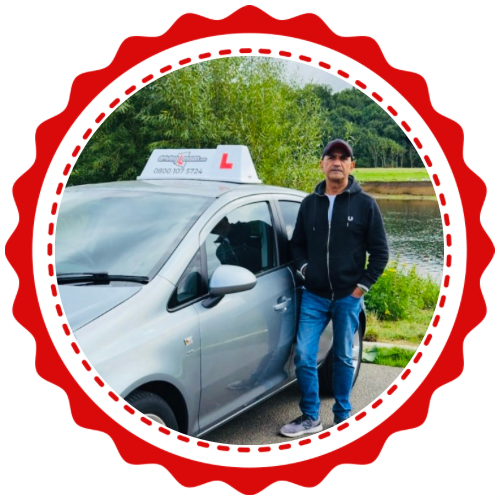
TOP TIP: Every learner driver is focused on, or stressing about, their test. It pays to remember that your driving lessons are about far more than passing first time. They’re about giving you the vital skills you need to drive safely for the rest of your life. Bear this in mind rather than just focusing on your test. Ask yourself if you’d feel safe driving with a small child in the back of your learner car – that’s when you know you’re really ready.
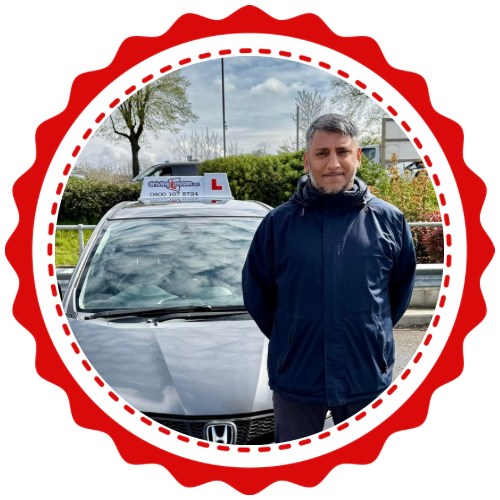
TOP TIP: Mistakes are inevitable but you shouldn’t dwell on them. Whether it be stalling the vehicle under pressure or getting a manoeuvre wrong, it is important to remain calm in these situations and not to worry about what other drivers think.
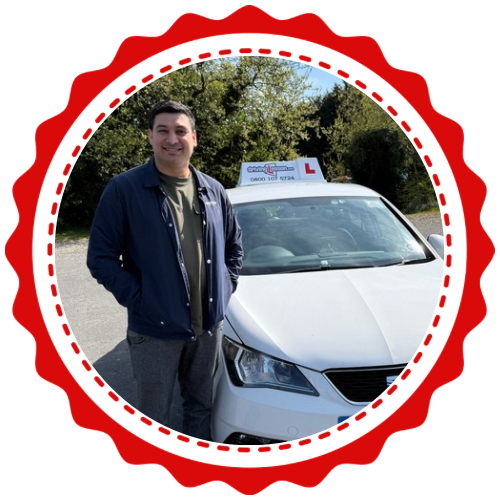
TOP TIP: Over the coming months you’ll be spending a lot of time with your driving instructor, so it can make all the difference when you are learning with someone that meets your needs and that you get on with. Studies show that being happy, calm and relaxed helps you to learn and remember better. A good driving instructor should be experienced and qualified, as well as someone you feel comfortable with and trust.
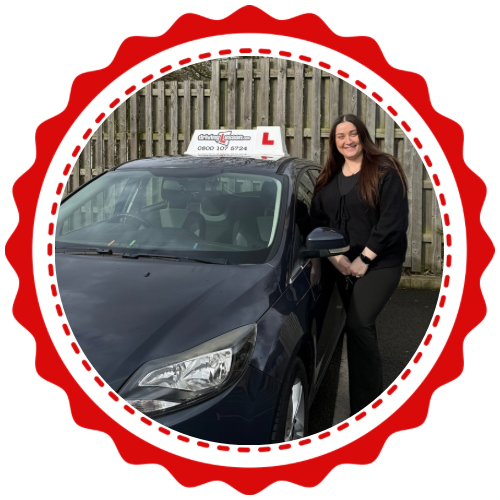
TOP TIP: Try not to get exasperated or frustrated when you cannot get a manoeuvre right. This will only make learning even more difficult. The dual controls on the car will keep you safe and the instructor understands that it is often through making mistakes that you really learn.
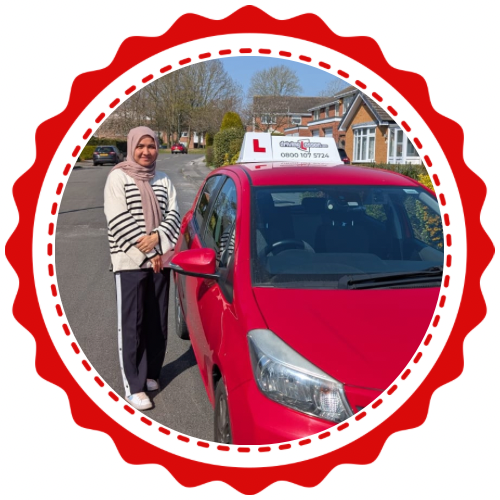
TOP TIP: If you make a mistake, feel overwhelmed, or simply get a blank mind during your test, do not panic. Making mistakes does not mean you aren’t a skilled driver! By taking a deep breath to compose yourself and showing your examiner that although you had an issue, you comfortably overcame it, will make the best of the situation and give you the best chance to carry on your test error-free.

TOP TIP: You’re likely to hear lots of new terms while you’re learning to drive, and it is important that you get to know what they all mean. The MSPSL routine, for example, is the Mirror, Signal, Position, Speed, Look, routine which all drivers should go through every time they’re on the road. Learn your routines and make sure you’re using them every time you drive.